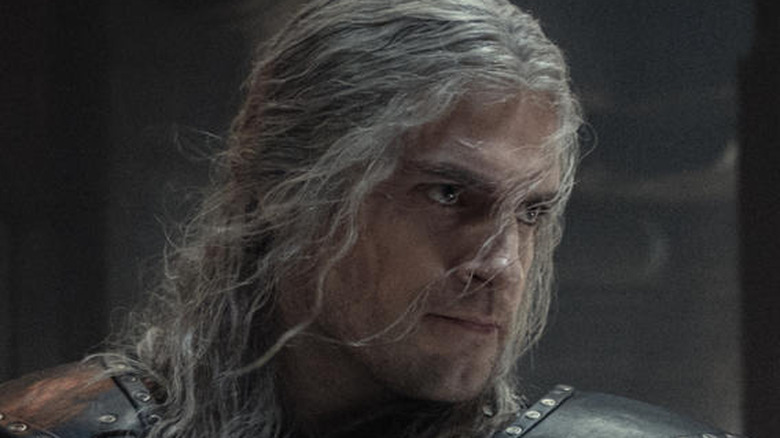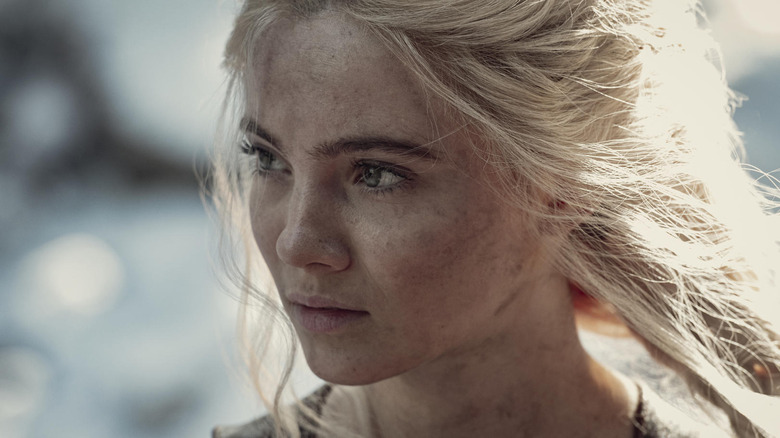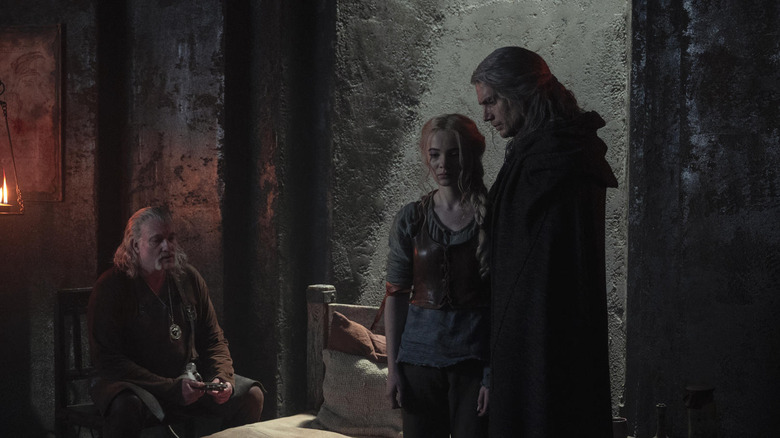The Director Of The Witcher Comments On What Gets Cut
Netflix's fantasy drama "The Witcher," which is based on the novels by Andrzej Sapkowski of the same name, follows Geralt of Rivia (Henry Cavill), a monstrous bounty hunter with a heart of gold and a horse named Roach. When Geralt isn't doing his Witcher duties, he's romancing sorceresses and acting as the Continent's coolest surrogate father for cranky princesses. That, too, is a whole thing.
While the series originally garnered mixed reviews, with critics citing missteps such as bizarre chronological choices and slow pacing, the second season bolstered the project's mass appeal, seemingly by listening to feedback and blending the strongest elements of its predecessor. This is no doubt due in part to Marc Jobst, one of the many directors behind "The Witcher," who took to Reddit after the first season dropped to answer any questions that the fans might have.
Obviously, any TV or film project shoots more footage than necessary — particularly when it comes to fantasy fiction, which has to continually weigh the benefits of world-building and streamlining — and here's what Jobst had to say in regard to sculpting the best scene.
Marc Jobst shoots with cutting room edits in mind
In the Subreddit r/netflixwitcher, a since-deleted account asked how heavy the editing process was for the show, and whether cuts were planned from the outset. Jobst, to his credit, responded to the Reddit user's question with a lengthy and engaging answer that might make any fan feel respected. The director said, "My training has always been to shoot for the cutting room. In other words, you always have a cut in mind. You shoot what you need to make the cut you have in your head. Directing is about making choices. Just randomly shooting everything, at every angle, on a wide shot, a medium shot, and a close-up, isn't directing to me, it's just 'hoovering up' a scene and being a provider of rushes. Yes, execs may love you because you can cut it every which way, but I think directing is about having a vision and shooting to realize that vision."
Jobst also went on to say that he prefers to work on projects that he personally feels as if he can provide unique insight for and that, even then, sometimes what is expected to play well in a director's vision doesn't always translate as intended, which can lead to requiring extra footage, an issue that can potentially be eradicated by filming more in the first place. The director's thought process indicated a deep understanding of the situation, and an earnest desire to share his mind.
Jobst wrapped up his short essay by saying that he hoped he clarified a fraction of what he believed to be a massive topic. However, this isn't the only time he's discussed the unique aspects of filming a major streaming series like "The Witcher."
Marc Jobst approached the project like an audience member
In a podcast interview with At The Flicks, Marc Jobst discussed how working on "The Witcher" varied from previous episodic projects that he'd been part of in the past, citing a shift in how viewers consume media as the onus behind the alteration.
While on the topic of binge-watching, he said, "[Netflix said to] Think of this as chapters within a book. That's fundamentally different to how you tell a story. In the traditional British model of the BBC or whatever, you have a cliffhanger at the end of every episode, and that's what the audience hooks into. If you are writing for a binge-watching audience, you think they're going to do at least two, possibly four episodes. You don't have to have that hook. It means that you can have one episode as a chapter."
He also went on to admit that he was utterly unfamiliar with the source material as he approached "The Witcher," saying that he preferred to come at the project with fresh eyes, or rather, eyes like an audience member. As such, he could ask — and hopefully answer — the questions most people would probably ask about the characters and their world. While some die-hard fans might take such a laissez-faire approach to the source material as a personal insult, it's important to acknowledge the massive reception the series has earned thus far (including on Rotten Tomatoes), which means that Marc Jobst's directorial approach — and the approaches of his artistic peers — has worked for most of the viewing populace.


